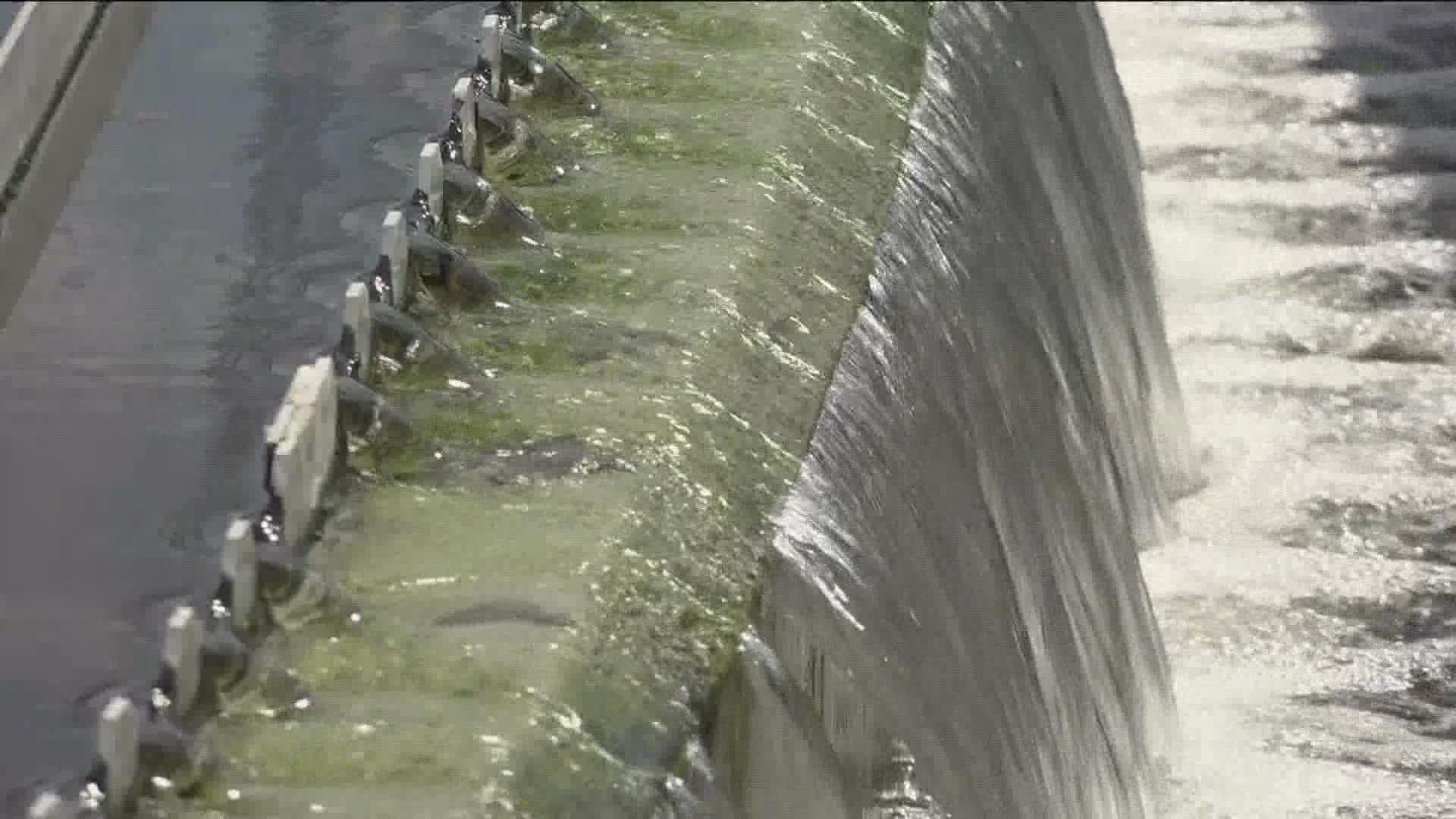ROUND ROCK, Texas — The past six months have put a spotlight on the Brushy Creek Regional Wastewater Treatment Plant in Round Rock.
City utility staff notified residents that leaks in pipes leading to the facility were overflowing the plant's capacity, causing floating solid effluent to discharge into Brushy Creek.
Fortunately, an expansion at the facility was already underway to increase wastewater capacity. With the additional capacity, the overflow went into new basins to go through the treatment process, ultimately clearing up the creek.
"When you have excess capacity coming into the plant, the process is going too fast," Michael Thane, the city's utility director, said.
Thane visits the regional plant about twice a month. It services all of Round Rock, Cedar Park, Leander and parts of North Austin. Before the new capacity came online, the city could handle a little more than 20 million gallons per day.
With the new aeration basins and filtration systems, the wastewater treatment plant can process approximately 30 million gallons per day. According to Thane, the expansion project has been in the works for more than a decade.
"We're adding another UV basin, a larger one that can handle that extra flow that we're adding to the plant," Thane said.
Ultraviolet light is the last filtration system before the water flows back into the creek. It effectively kills stray bacteria that would harm the creek's waters and aquatic wildlife. When too many floating solids get through the filtration systems, the UV has trouble finishing off the bacteria.
As a response to the leaks from March that led to public outcry, the City of Round Rock put in motion plans to purchase and install tertiary filters. The filters sift out even the smallest of particles, allowing the UV light to clean the water even more effectively at the end of the process.
"We plan on having those installed in the next couple of years, which will really help us meet all the permits from phosphorus to nitrogen to all those extra parameters that are being placed on us here at the plant," Thane said.
The Texas Commission on Environmental Quality is planning on updating certain standards for wastewater treatment facilities by the time Round Rock must renew its permit. According to Thane, the tertiary filters will keep the city below the newer, more stringent thresholds for wastewater filtration.
"We envisioned a pretty tight permit," Thane said. "We've built that into this expansion, and we're building that into things we're doing in the future. So just in case the permit gets more stringent, we're ready for it."
The original expansion plans will finish construction in June 2023. The tertiary filters will take another two to three years to be completely installed. Once the original expansion is built, Thane said his staff will get started working on the next expansion for the wastewater facilities in Round Rock.
PEOPLE ARE ALSO READING:

